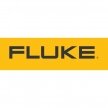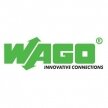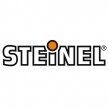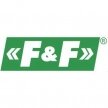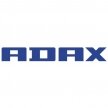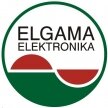-
Product Catalog
- Security and Surveillance Systems
- Automatic Circuit Breakers for Direct Current (DC) Circuits with Integrated Overload, Short-Circuit, and Voltage Stabilization Protection Functions
- Lighting with the help of electrical energy
- Automation and Control Systems
- Sealing profiles | rubber | gaskets | strips
- Inflatable Liquid Storage Tanks | Reservoirs | Bladders
- Inflatable rubber plugs for sealing high-pressure plumbing pipes
- Electrical distribution and installation
- Solar Energy Generation and Management Equipment
-
HVAC control solutions for heating and ventilation.
- HVAC automation
- Fans for ventilation systems
- Ducts and connections for ventilation | air conditioning systems
- Chimney Caps | Deflectors | for Ventilation and Chimney Systems
- Dampers for ducts | ventilation | air conditioning systems
- Duct Silencers | Ventilation | Ventilation Systems
- Air Filters for Ducts | Ventilation | Ventilation Systems
- Supply Air Ventilation Dampers
- Diffusers for Ventilation Systems
- Mobile Air Conditioners | for Indoor Climate Control
- Domestic | industrial air purification systems
- Special products and accessories
- Other products
- Safety tools
- Quality used products
Temperature sensors and thermostats
-
Read more
Temperature sensors are electronic devices used to measure temperature in various environments and industries. They are essential for monitoring and controlling heat levels in manufacturing, heating and ventilation systems, laboratories, automobiles, electrical engineering, and many other fields.
Main features of temperature sensors:
Accuracy: Temperature sensors provide highly accurate measurements, ensuring precise readings even in complex conditions.
Sensitivity: These sensors respond quickly to environmental temperature changes, making them suitable for systems that require a fast response.
Various technologies: Temperature sensors can come in different types – thermocouples, resistance temperature detectors (RTD), thermistors, and infrared sensors. Each type has its specific advantages and application areas.
Operating temperature range: Depending on the type, temperature sensors can operate in very low or high temperatures – from several hundred degrees below zero to hundreds of degrees above zero.
Durability: Most sensors are designed to operate for long periods, even in extreme conditions, making them commonly used in industrial and harsh environments.
Applications:Industry: Temperature sensors are used in manufacturing processes, especially where maintaining precise temperature levels is crucial, such as in metalworking, chemical industry, and food production.
Heating and cooling systems: These sensors are essential in heating, cooling, and ventilation systems, helping maintain the required room temperature and ensure energy savings.
Automotive industry: In automobiles, temperature sensors are used to monitor engine heat, in air conditioning systems, and other important vehicle systems.
Laboratories and research: Temperature sensors are necessary for scientific research and experiments where precise temperature control is a prerequisite.
Advantages:High measurement accuracy.
Quick response to temperature changes.
Suitable for various industrial and household applications.
Long-lasting and reliable even in challenging environments.
Disadvantages:Some sensors may require calibration.
Depending on the type, some sensors may be sensitive to environmental factors such as humidity or corrosion.
Temperature sensors are essential in every field where it is important to monitor and regulate temperature, ensuring optimal process operation and safety.No items found.
US IN SOCIAL NETWORKS







